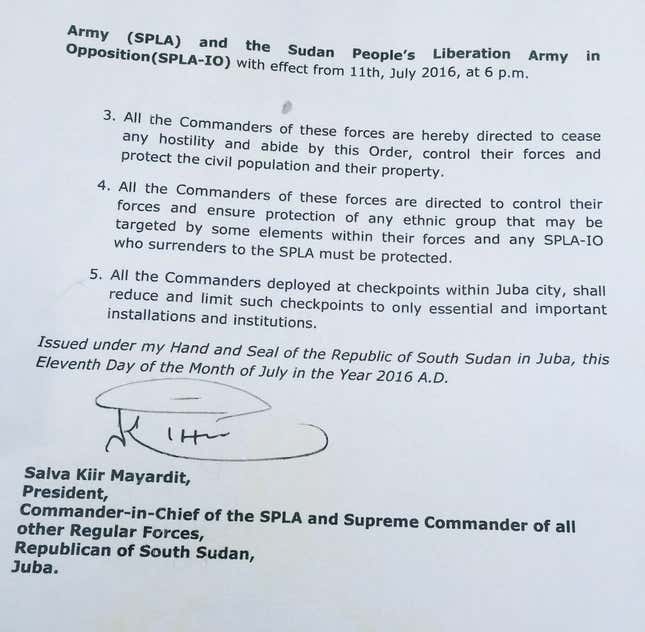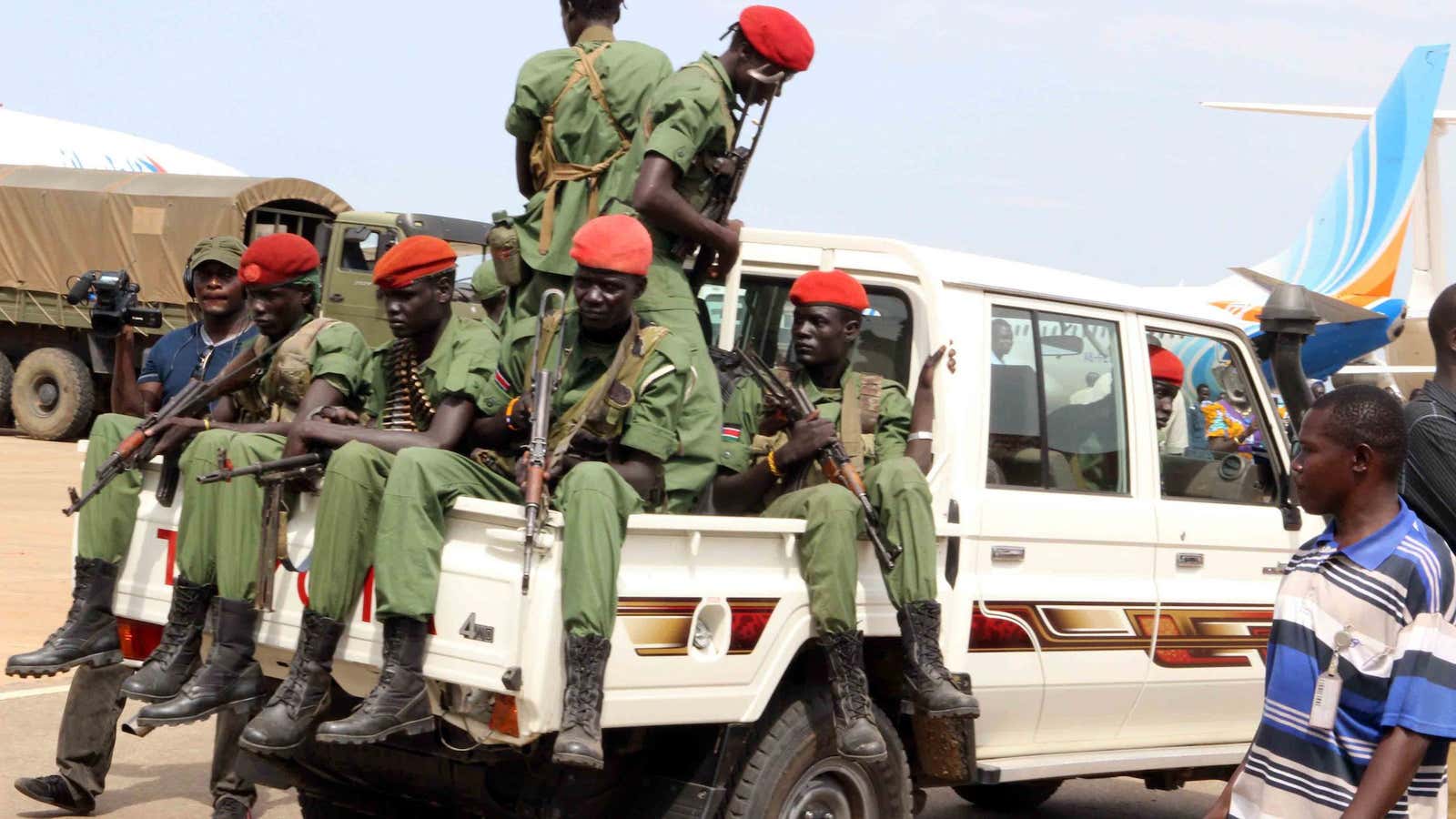An uneasy calm has settled over Juba, the capital of South Sudan, after rival government factions called for a ceasefire to fighting that has left at least 270 people dead. Most shops are closed and residents are holed up at home. So far the streets are empty of tanks and soldiers as forces loyal to president Salva Kiir or his rival Riek Machar appear to be heeding their leaders’ orders.
A spokesman for president Salva Kiir and his rival Riek Machar had met and “talked about controlling their forces in an attempt to salvage what has remained of the peace agreement” on Monday evening (July 11).
The fighting comes only three months after a peace deal was signed to to end a civil war that has ravaged the country since 2013, killing thousands, displacing more than 2.5 million people, and leaving almost half of the country without enough food. The two leaders agreed to form a coalition government with Machar as Kiir’s vice president.
Clashes erupted last week between the bodyguards of Kiir and Machar and continued through the weekend with a brief pause on Saturday, when the country marked its fifth year of existence without celebration. It’s unclear why the fighting began or what the objective of either side is. Observers worry it could derail the already slow-moving peace process.

The United Nations secretary-general Ban Ki-moon has called for a an immediate arms embargo on South Sudan, further sanctions on leaders that stand in the way of the peace deal.He also called for attack helicopters to support the UN’s 13,000 peacekeeping troops in the country. Two Chinese peacekeepers and one UN staff have been killed in the fighting.
“This is the time to massively reinforce UN action,” Ban, according to comments posted on the UN website. “When a government cannot or will not protect its people, and when warring parties seem more intent on enriching and empowering themselves at the expense of their people, the international community has a responsibility to act.”
The United States, Japan, Uganda, and India have begun evacuating citizens in the country. And neighboring countries fear the conflict will spill over. The Intergovernmental Authority on Development, or IGAD, formed by a bloc of east African countries, is calling for a revision to the UN’s mission in South Sudan so that an intervention force can be created and more troops from the region can be called.
In South Sudan, civilians worry that the current situation is reminiscent of the fighting that preceded the beginning of the country’s bloody civil war. Emily Koiti, a student in Juba, told the BBC, ”I was here in December 2013 and this does remind me of that time. My fear is that it could escalate into what we saw then.”




